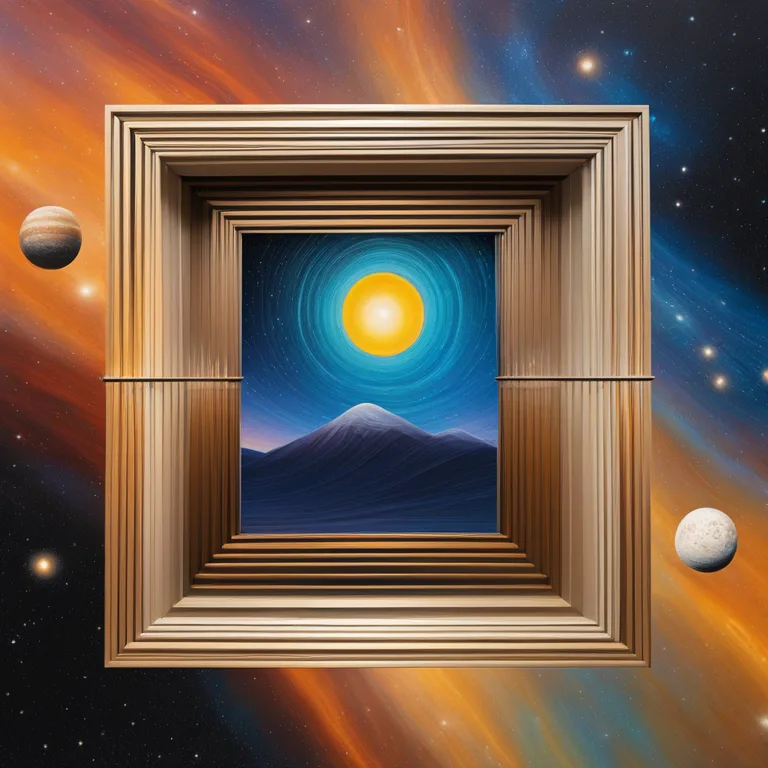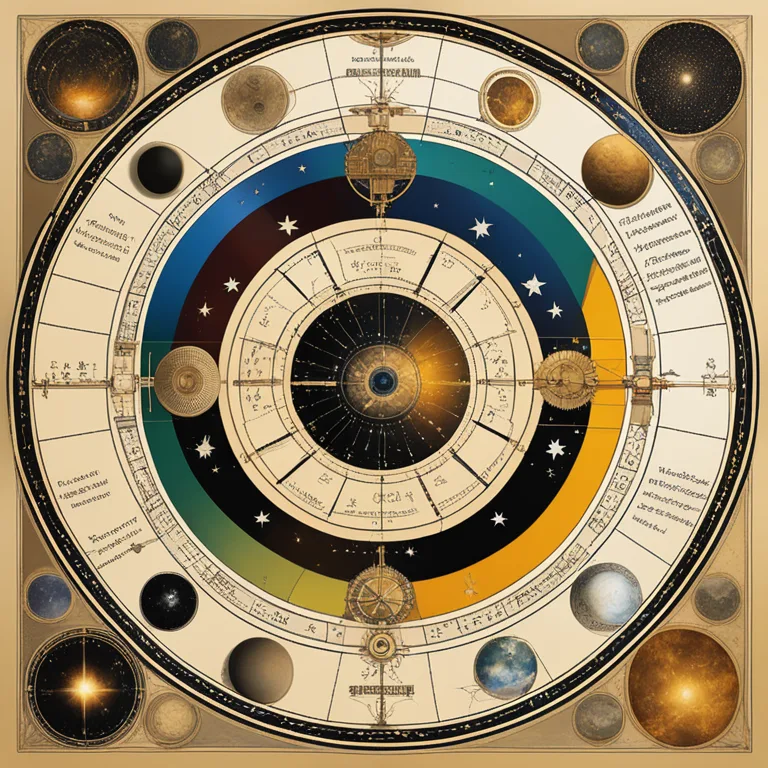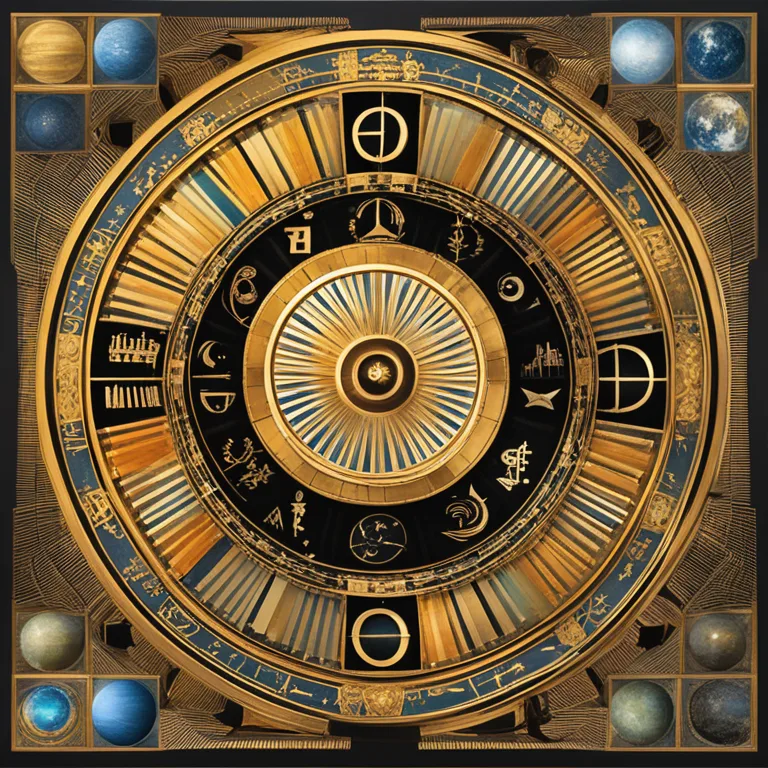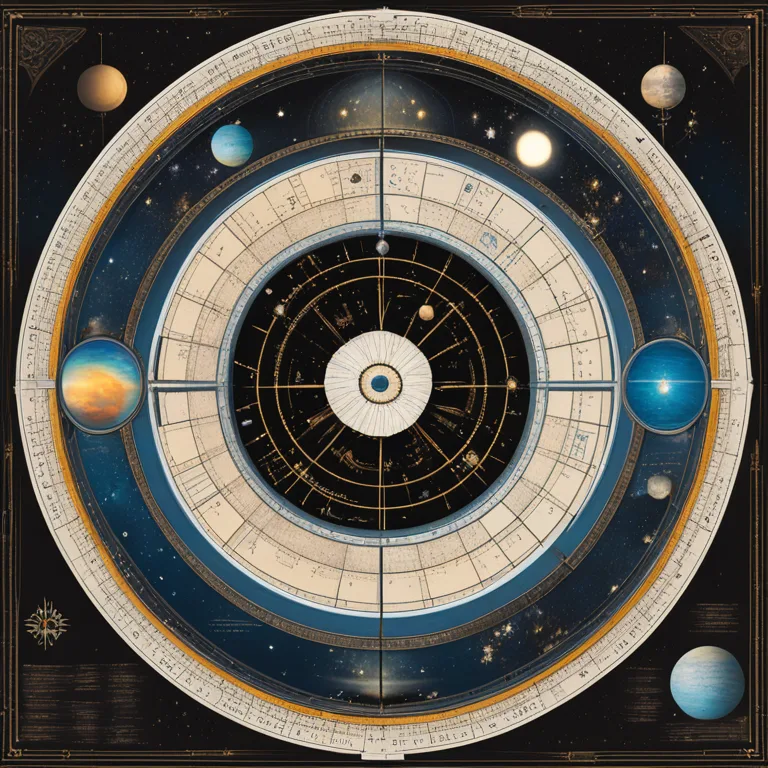
Astrology Versus Astronomy: Telling Them Apart
An insightful examination of the key differences and individual significance of astrology and astronomy, the ancient studies of stars with a modern lens.
article by Priya Deshmukh
Defining Astronomy and Astrology
Astronomy is a scientific discipline dedicated to the study of celestial objects and phenomena. It uses mathematics, physics, and chemistry to explain their origin and evolution. Astronomers scrutinize the universe, aiming to uncover its secrets, from the physics of stars to the behavior of galaxies and the search for exoplanets. In contrast, astrology is an esoteric system that asserts the positions and movements of celestial bodies impact human lives and earthly events. While astronomy is recognized by the scientific community, astrology is considered a pseudoscience. Nonetheless, astrology continues to fascinate many, offering personal insights and future forecasts.

Historical Intersection of Astronomy and Astrology
The paths of astrology and astronomy have been historically intertwined. Ancient civilizations did not differentiate between the two, using celestial observations to navigate, mark the time, and make predictions. Over time, methodical scientific inquiry separated astronomy from astrology. The scientific revolution furnished astronomy with robust empirical foundations, distancing it from astrology's speculative assertions. However, astrology's cultural impact endures, evident in the popularity of horoscopes and the persistent search for cosmic significance in our lives.

Modern Astronomy: A Gaze into the Cosmos
Modern astronomy has made leaps forward with technological advancements, empowering us to view the cosmos with unprecedented clarity. As we progress into 2024 and beyond, astronomers anticipate new discoveries from missions like the James Webb Space Telescope, which seeks to unveil the universe's early history. From mapping dark matter to detecting gravitational waves, astronomy continuously enriches our understanding of the very fabric of existence.

Astrology in the Modern Era
Astrology adapts to modern sensibilities, frequently seen in daily horoscopes and personality analyses. Approaching 2024, astrologers entice enthusiasts with insights into personal growth and compatibility, attributing shifts in energies to planetary transits such as Jupiter's dance through the signs. Whether for entertainment or personal reflection, astrology's narratives offer a continued sense of wonder about our connection to the cosmos, though lacking scientific endorsement.

Critiques and Cultural Significance
Criticism of astrology is anchored in its lack of empirical evidence and the failure of its predictions to consistently outperform chance. Astronomers and skeptics argue that astrology's reliability issues undermine its claims. Cultural significance, however, cannot be dismissed. Astrology's prevalence demonstrates a yearning for meaning and a framework to ponder life's vicissitudes. It serves as a lens through which many view relationships, make decisions, and find comfort amidst uncertainty.
Looking to the Stars: A Personal Journey
Ultimately, individuals' journeys to the stars unfold in personal beliefs and interests. While astronomy offers a window into the vast universe and its workings, astrology provides a narrative for self-exploration and contemplation. Choosing between science versus symbolism, or blending both into one's worldview, reflects the diversity of human experience and our perpetual quest to understand the unknown.
Published: 12/29/2023
Modified: 12/29/2023
More predictions
Come back here soon to learn more about yourself and your future


The Rhythms of Your Birth Chart
Delve into the significance of your birth chart and what the celestial patterns at your birth reveal about your potential, personality, and life path.


The Power of Biorhythms: A Guide
Delve into the significance of your birth chart to comprehend your astrological imprint and personal destiny as written in the stars.


Birth Chart Without Time: Overview
Discover insights into analyzing a birth chart when the exact time of birth is unknown, providing alternative astrology approaches for clarity.